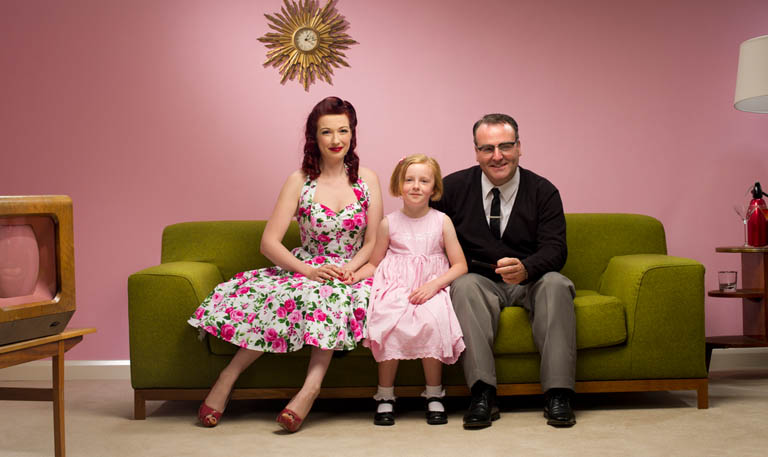We, the dog and I, are walking. It is winter, the sky, a tease. In the west, ribbons of pale yellow hover throughout coils of fuming gray. We are on different walks, the dog and I. She is content to match my stride or, bullish, yanking my arm when struck by some irresistible perfume—pee, poop, the trace of something rotting. Me, my mind is muttering, one moment struggling to remember what I’ve read this morning, another, coaching myself to be present, still another, usurped by irritation because it starts to rain. I have left my umbrella in the car—ditto, my hat. The walk’s perfection, ruined. I have miscalculated, errored. I am surprised by the force of my irritation. It is a torment; it is aimed at me. Why, I wonder, is my happiness so brittle, so easily toppled by such predictable vagaries as weather? At 75, I feel an urgency not to spend the time I have left in bondage to this habit of perfection.
I live in the penumbra of my mother’s sad refrain, “All I ever wanted was a perfect family.” Could that be why, in spite of terrifically good luck, sufficient money, the sustaining miracle of marriage, a home, a garden, and a dog, I always let out a little sigh of resignation, as if I’ve settled for, or ended up with. . .?
“All I ever wanted was a prefect family.” Really? “All?” What can that possibly encompass? It is so rueful, this supplication, more akin to looking back with regret than forward to some rosy future. It implies that the “All” has been betrayed, at the least, disappointed. A ripe peach not in one’s lunch box, a birthday pony not tethered in the backyard. A little sister. Ah. When with my mother did this wish begin? Unable to have babies, Mother’s perfect family might have been the wish that this betrayal of her body not be so, hence, her family assembled from adoption, being lesser, was imperfect. There was no way to talk about this with her. And it must be said that however earnestly I might ask a question to unearth some emotional truth about her wish, about her disappointment, such would not be met with equal eagerness or candor. My questions—felt intensely—were they laced with sarcasm? Was there a hint of mockery? As they began in my adolescence, most probably so. In any event, Mother’s fervent Christian Science, commitment to the anodyne, and distrust of curiosity precluded a shared exploration. So, I will never know when or why her refrain began, or what constituted, in her mind, a “perfect family.”
She preferred the absence of emotion, and that the quotidian unfold like a dinner table conversation, gracefully from topic to topic—bouillon to salad, entree to dessert. I believe that she desired stasis—a moment frozen as in those scallop-edged Polaroid snapshots—me at 4, looking up at her with glee and adoration, she, peering down with perfect love. We dressed for a day at the beach in Ocean City. Those golden days—moments of accord and harmony—that they stay locked in a stasis of the perfect gaze.
Not surprisingly, Mother never asked me to describe my perfect family. She might have intentionally avoided this, as I recall petitioning—endlessly in my early years—for a little sister. If my parents got me via adoption after all, might they not acquire another through such uncomplicated means? Upon reflection, my current family life—rich with daughters, granddaughters, nieces, nephews, in-laws, out-laws—would be less baffling had I grown up with siblings. Instead, I navigate awkwardly, queasy in chaos, irritated by cross talk and interruption, resisting my urge to follow each grandchild with a mop, a pail, a sponge, and a bin in which to toss their infantile detritus. How I wish this were not so. How I yearn for kindness and tolerance and good humor.
I probably romanticize siblings, believing this has passed me by—the intimately shared past, the patois, the rivalries resolved and not, the terrors navigated, and protections offered. I simply believe that a sibling or two would have made me a more resilient and forgiving person, and may have inoculated me against my own perfectionism, my requirements:
That the dishes stand upright in the drainer
The books fall in line, alphabetically within their categories
The bed be made instantly upon rising, corners squared, quilt fluffed
The perfect walk unfolds in the perfect day, the dog in perfect harmony beside me.
Grammy Award-winning artist Laurie Anderson, in conversation with Anderson Cooper, mentioned a perspective from the Tibetan Buddhists whom she studied with, that it is possible to regard happiness as a choice. Yes, there is suffering and vagary and disappointment—that is bedrock, that is truth. But within that frame, one can choose where to put one’s attention—on happiness or grievance, on gratitude or resentment at the unfairness of it all. Recently, I’ve been practicing a counter refrain to Mother’s, as offered by Tara Brach, a meditation teacher:
Let go of what is past
Let go of what is to come
Let go of what is happening now
Don’t try to figure anything out
Don’t try to make anything happen
Relax right now and rest
Mother’s refrain infused my rainy walk that afternoon in Seattle. It seems trite, an insignificant detail, but when I overlay my irritation onto the many moments of a day, it accrues to a modus operandi, and I’ve got to break the spell.
A practicing Buddhist for more than 30 years, Hollis Giammatteo has sought experiences that challenge her practice, from teaching writing to working with the elderly. She co-founded The Wilma Theater in Philadelphia and was a resident playwright for The Rhode Island Feminist Theatre. Giammatteo has published in a variety of magazines and her memoir, The Shelf Life of Ashes, was released in 2016 by She Writes Press.


